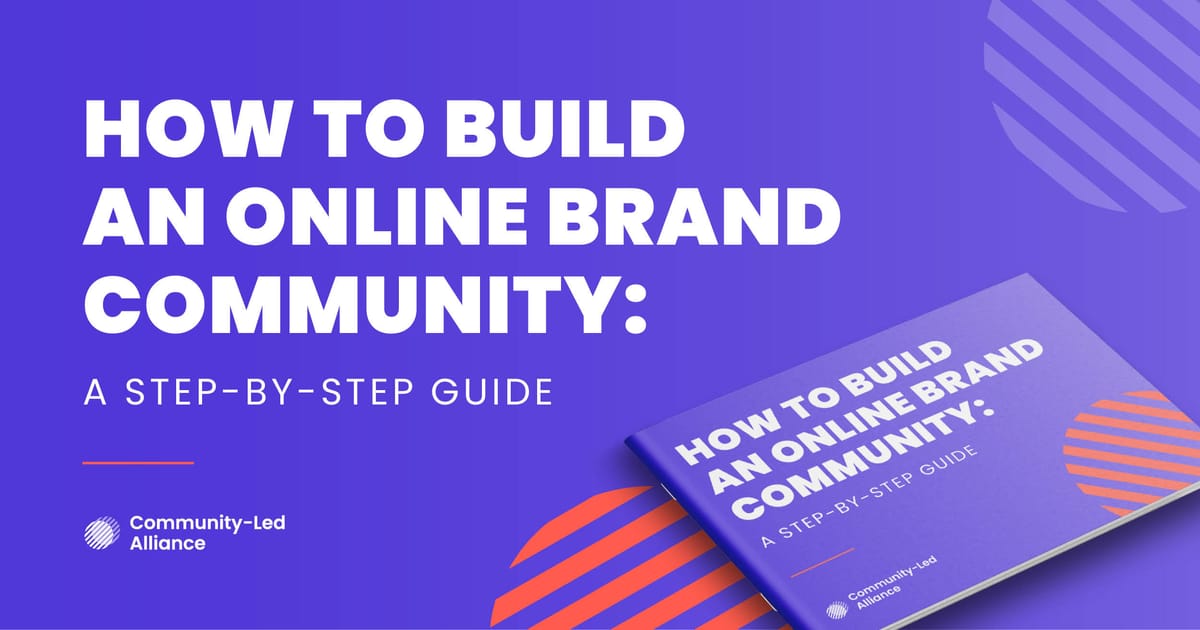Community managers, customer success managers, social media managers, and event managers are all key roles within an organization. On the surface, it may seem like they all serve a very different function. But there’s actually a lot of overlap in the skills required to perform these roles, and the objectives they’re trying to achieve.
Understanding this overlap — and the distinctions — is crucial for businesses looking to effectively allocate resources. It enables organizations to craft comprehensive strategies that ensure cohesive brand messaging, seamless customer experiences, and dynamic engagement across all platforms.
In this article, we’ll take a look at the skills that permeate through all these different roles, where they find common ground and their role-specific responsibilities.
Similarities in these roles
Shared goals
While community managers, customer success professionals, social media managers, and event managers have unique responsibilities that distinguish them, they do share a set of core goals.
Central among these goals is enhancing brand loyalty and engaging customers in a meaningful way to create positive experiences that resonate with them. Each of these roles plays a key part in the fabric of customer relations that supports a loyal community around a brand.
By fostering an environment where engagement and positive experiences are paramount, they collectively contribute to a stronger, more vibrant brand presence that attracts and retains customers.

Communication
A core component of all these roles is the art of communication. The ability to articulate messages effectively, both online and offline, is crucial to their success.
Community managers must communicate with empathy and clarity so they can nurture relationships with their community members. Customer success professionals rely on good communication skills to understand and address customer needs, ensuring customer satisfaction.
Social media managers create messaging that resonates with their audience, driving engagement and awareness. Event managers communicate to coordinate teams and create memorable experiences for event attendees.
In each case, communication is an essential skill that directly impacts the ability of these professionals to connect with audiences, making it an indispensable skill to have.
Customer-centric
Having a customer-centric approach is another thread that ties all these roles together. Each role prioritizes customer needs and feedback in some capacity to inform their future strategies and decision-making processes.
Community managers listen to and engage with community feedback to build a stronger community and inform product development. Customer success analyzes customer interactions to tailor services and support so they can maximize value for the customer.
Social media managers use insights from customer engagement to refine content strategies and improve their messaging. Event managers gather attendee feedback to enhance future event experiences. This focus on the customer ensures that all strategies are aligned with the overall business goals of delivering value.
By understanding and leveraging these common skills, organizations can create a cohesive strategy that spans across these different roles. This integrated approach not only strealines efforts but amplifies the impact of each role, driving greater brand loyalty and customer engagement.

Role-specific responsibilities
Community managers
Community managers look after online communities, building and nurturing the space where brand enthusiasts can gather, share, and engage with each other.
Their role is a delicate balance of moderating discussions to ensure a positive and inclusive environment, creating engaging content, and facilitating engagement that strengthens the community overall. They’re the bridge between an organization and its audience, representing the brand voice within the community while also gathering feedback for the organization.
This feedback loop is essential for informing product development and future marketing strategies, making community managers vital in aligning business objectives with customer needs.
Customer success
Customer success professionals are dedicated to ensuring customers achieve their desired outcomes while using a product or service, so they play a crucial role in customer satisfaction, retention, and loyalty.
Their responsibilities extend beyond that of typical customer service; they work proactively with customers to understand their goals and guide them through the optimal use of the product, providing tailored solutions that enhance value.
By establishing strong customer relationships and ensuring customers get to grips with the full potential of their purchases, customer success managers can directly impact customer satisfaction, reduce churn, and foster customer loyalty.
Social media managers
Social media managers look after a brand’s presence on different social platforms, a role which requires creativity, strategic thinking, and adaptability. They’re responsible for managing social profiles, creating and curating content that resonates with the brand’s audience, and analyzing engagement data to gauge the effectiveness of their strategies.
They also run marketing campaigns designed to increase brand awareness, engage with followers, and drive conversions. Their expertise in social media trends and algorithms means they can craft compelling narratives that capture audience attention, making social media a powerful tool for brand storytelling and audience growth.

Event managers
Event managers are the gurus behind a brand’s events, responsible for planning, organizing, and executing events that align with the organization’s goals and objectives. Whether it’s a product launch or a conference, they ensure every aspect of the event creates a memorable experience for the attendees.
The role encompasses a range of tasks for conceptualizing event themes, securing venues, coordinating with vendors, managing budgets, and overseeing the event itself. With meticulous planning and attention to detail, event managers create immersive experiences that not only engage but strengthen the community’s connection to the brand.
Each of these roles with their specific responsibilities contribute to the overarching goals for an organization of building a strong, engaged, and loyal customer base.
Essential skills for each role
Community managers
For community managers, empathy is a key skill that enables them to understand and connect with community members on a genuine level. This deep sense of empathy aids in effectively managing and resolving conflicts, ensuring discussions remain respectful and constructive.
Community managers must also have the ability to foster a positive community culture, one that encourages engagement, inclusivity, and mutual support. Creating such an environment requires a blend of strategic communication, active listening, and the ability to inspire and motivate community members, ensuring the community remains a welcoming space for all.
Customer success
Customer success professionals need analytical skills to sift through customer data to discover actionable insights. This ability allows them to understand customer behavior, predict their needs, and tailor services accordingly.
Strategic thinking is also crucial for mapping out the customer journey, identifying key touchpoints, and devising strategies to enhance the customer experience at each stage. Interpersonal skills are also fundamental for building and maintaining strong relationships with customers.
These skills help in communicating value, addressing concerns, and fostering a sense of trust and loyalty that is essential for customer retention.

Social media managers
Creativity is one of the most essential skills for an effective social media manager, fueling the creation of compelling and engaging content that captures the brand and resonates with their audience.
Tech-savviness is equally important, as it enables social media managers to navigate the complexities of different social media platforms, making the most of their unique features and audience demographics.
Analytical skills also play a pivotal role in measuring the success of social media campaigns, requiring the ability to interpret data, adjust strategies in real-time, and demonstrate the ROI of social media efforts.
Event managers
Organizational skills are crucial for event managers, who need to juggle multiple components of event planning and execution. This includes coordinating with vendors, managing event logistics, and ensuring that every detail aligns with the overall vision for the event. Attention to detail is critical, as it can make the difference between a good event and a great one.
The ability to manage budgets and adhere to deadlines ensures that events are not only memorable but also cost-effective and timely. These skills, together with a proactive approach to problem-solving, equip event managers to overcome challenges and deliver exceptional experiences that align with the brand's goals and exceed attendees' expectations.
By nurturing these essential skills, professionals in each of these roles can significantly contribute to their organization's success, ensuring that customers and community members alike feel valued, engaged, and connected to the brand.
Blurring lines and interdisciplinary nature
The lines between the roles of community managers, customer success professionals, social media managers, and event managers often blur. Convergence between them is most evident in projects that require a multidisciplinary approach, such as events, social media campaigns, or customer feedback initiatives.
For example, an event can leverage all four roles: the community manager engages with the community, the event manager orchestrates the logistics, the social media manager promotes the event, and customer success gathers feedback and ensures customer satisfaction post-event.
This intersection underscores the importance of collaboration and the ability to work across functions. Having collaborative teams that can bring a diverse range of skills to the table is crucial for success. The ability to understand and appreciate the contributions of different roles enables professionals to work seamlessly together, creating more cohesive and effective strategies.
For example, customer feedback collected by customer success professionals can inform the content strategy of social media managers, while insights from social media engagement can help community managers better understand the interests and needs of the community.
The interdisciplinary nature of these roles also highlights the need for cross-functional skills, such as project management and strategic communication. Professionals who can adapt to different roles and understand the broader context of their work within the digital strategy of a brand are invaluable.
They can navigate the complexities of the digital landscape with agility, ensuring that initiatives are well-coordinated and aligned with overarching business objectives.
Embracing the interdisciplinary nature of digital professions, fostering collaboration, and cultivating cross-functional skills are critical for brands looking to thrive in this environment. By doing so, they can create more integrated and effective strategies that leverage the strengths of each role, driving brand loyalty, customer engagement, and ultimately, business success.
Final thoughts
Each role, with its distinct responsibilities and skill sets, plays a crucial part in building and nurturing relationships between brands and their audiences.
Community managers focus on creating vibrant, engaging online spaces; customer success professionals ensure customers realize the value and achieve success with their purchases; social media managers craft compelling narratives and engage audiences across platforms; and event managers bring brand experiences to life through meticulous planning and execution.
Understanding the unique contributions and collaborative potential of these roles is essential. For those building teams, recognizing the value of each position and fostering an environment where these professionals can work together seamlessly is key to crafting comprehensive strategies that drive engagement and growth.
Get our playbook and check out how to build your own online community!





